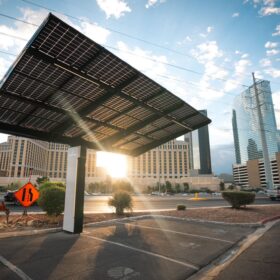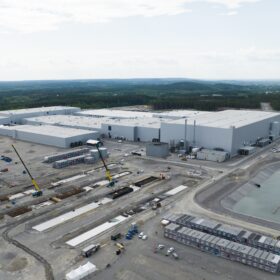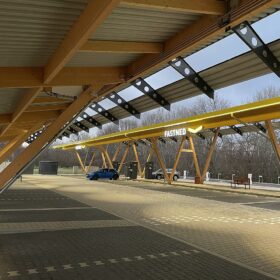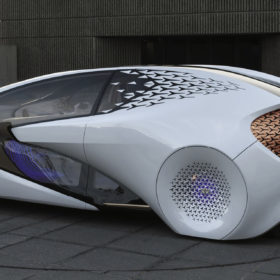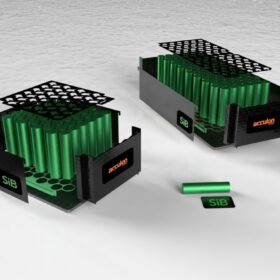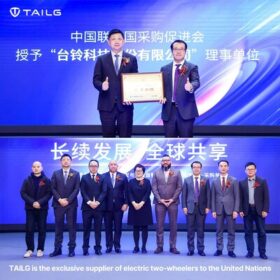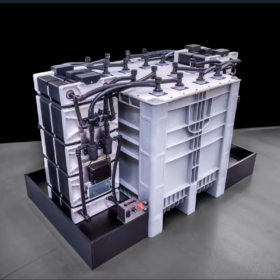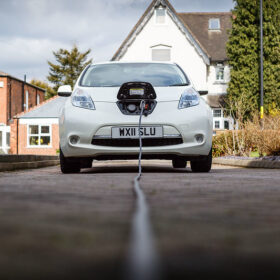Solar canopies as a central pillar of IRA-driven energy transition
With so much of the space in United States cities allocated for parking, the dual pronged approach of the Inflation Reduction Act (IRA) – production tax credits to drive investment in domestic manufacturing and investment tax credits to attract consumer-side investment – means solar canopies can make a huge contribution to the net zero drive.
Soly raises €30 million for European expansion
The Netherlands-based home and office energy specialist raised capital to expand its offering into Italy, Spain, France, and Scandinavia. It is already active in Netherlands, Belgium, Germany, South Africa, and the United Kingdom.
Tiamat secures funding for sodium-ion gigafactory in France
French sodium-ion battery maker Tiamat has raised €30 million ($32.6 million) in equity and debt financing. It will use the funds to launch the construction of a 5 GWh production plant in the Hauts-de-France region.
Northvolt secures $5 billion for Europe’s first circular gigafactory
Europe’s leading battery maker, Northvolt, has signed a $5 billion non-recourse project financing arrangement to enable the expansion of Northvolt Ett in northern Sweden. The deal represents the largest green loan raised in Europe to date.
German companies unite to bring virtual power plants to mid-sized businesses
Germany’s Electrofleet has invested in its virtual power plant technology partner Dieenergiekoppler. The two collaborate to enable mid-sized businesses to use self-produced renewable energy based on fixed price contracts. Dieenergiekoppler’s latest financing round solidified the collaboration.
New solid state battery charges in minutes, lasts for thousands of cycles
Researchers from the Harvard John A. Paulson School of Engineering and Applied Sciences (SEAS) have developed a new lithium metal battery that can be charged and discharged at least 6,000 times — more than any other pouch battery cell — and can be recharged in a matter of minutes.
Acculon launches production of sodium-ion battery modules, packs
US-based Acculon Energy has announced series production of its sodium-ion battery modules and packs for mobility and stationary energy storage applications. Scaled production of 2 GWh is scheduled to start in mid-2024.
TAILG unveils two-wheelers powered by sodium-ion batteries
China-based TAILG has revealed its new sodium-ion battery technology. The company’s luxury e-bikes will be the first to feature its sodium-ion batteries, and they will initially be available in China.
CMBlu Energy’s organic flow batteries to be tested in microgrids, cold climates
The US Department of Energy’s (DoE) Argonne National Laboratory and Idaho National Laboratory will carry out demonstration projects to validate long-duration energy storage tech developed by German manufacturer CMBlu Energy. The collaborative project is designed to improve microgrids in cold climates and make fast charging of electric vehicles more affordable in underserved communities.
How to integrate residential solar-plus-storage with vehicle-to-home systems
Researchers from Australia have created a model to optimize the interaction between vehicle-to-home (V2H) systems and residential PV connected to battery storage. They claim V2H can help reduce the cost of energy by 16.7% for workplace charging and 25% for public charging.
